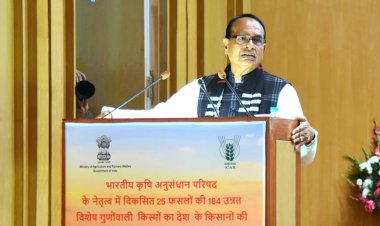India’s Climate Tech Startups Struggle with Growth-Stage Funding: IIMA Ventures and MUFG Report
The lack of growth-stage funding, with only 2.5% of startups raising Series A+ rounds, is predominantly represented by solutions in the electric mobility value chain.

India's climate tech ecosystem, consisting of over 800 startups, is facing critical funding gaps at the growth stage, according to a new report by IIMA Ventures (formerly IIMA-CIIE) and MUFG Bank. The report, titled “Innovation for Impact: Indian startups driving climate action,” underscores the need for enhanced capital to scale solutions and create lasting climate impact.
The report, launched at the Climate Action Summit—Building in India, for the World, highlights that while early-stage funding for climate tech startups remains robust—over two-thirds of funded startups have secured seed capital—only 2.5% have progressed to raising Series A or beyond. This lack of growth-stage funding is a significant barrier preventing these startups from scaling their solutions.
With India ranked as the 7th most vulnerable country to climate change, the report calls for immediate and collective action to unlock the full potential of the climate tech sector and drive meaningful impact in the fight against global warming.
Funding Disparity
India's climate tech sector, which comprises over 800 active startups, is dominated by solutions focused on emission reduction, with more than 80% of startups working on mitigation technologies. The transport and mobility sector, especially electric mobility, leads the ecosystem, attracting nearly 85% of the total funding. In contrast, critical sectors like industrial decarbonization, waste management, and alternative fuels remain underfunded, despite their high potential for climate impact.
While early-stage funding remains healthy, with two-thirds of funded startups securing seed capital, less than 3% have raised Series B or beyond. The lack of growth-stage capital is a major hurdle for startups seeking to scale and create wider impact.
Emerging Opportunities
The report emphasizes a significant shortfall in solutions aimed at building resilience to climate change, with most startups focused on mitigation rather than adaptation. However, it identifies future opportunities in decarbonization technologies, waste-to-value solutions, and alternative fuels such as biofuels and hydrogen, which could drive innovation and growth in the coming years.
Chintan Antani of IIMA Ventures stressed the importance of supporting climate tech startups with larger, later-stage investments: “India's climate tech sector has the potential to be a global leader in climate action, but without adequate growth-stage funding, we risk losing momentum.”
Call for Financial Support
The report also highlights the critical role of financial mechanisms in bridging the USD 1 trillion climate finance gap projected over the next decade. Takuya Senoo, Regional Executive of MUFG India, reiterated MUFG’s commitment to deploying JPY 100 trillion in sustainability-related financing by 2030, stating: “Supporting climate tech startups is essential for achieving India’s net-zero ambitions and driving sustainable growth.”
The India Climate Tech Initiative, a joint program by IIMA Ventures and MUFG, aims to address these challenges by providing financial backing and resources to startups that are developing solutions to mitigate and build resilience against climate risks.



 Join the RuralVoice whatsapp group
Join the RuralVoice whatsapp group







































